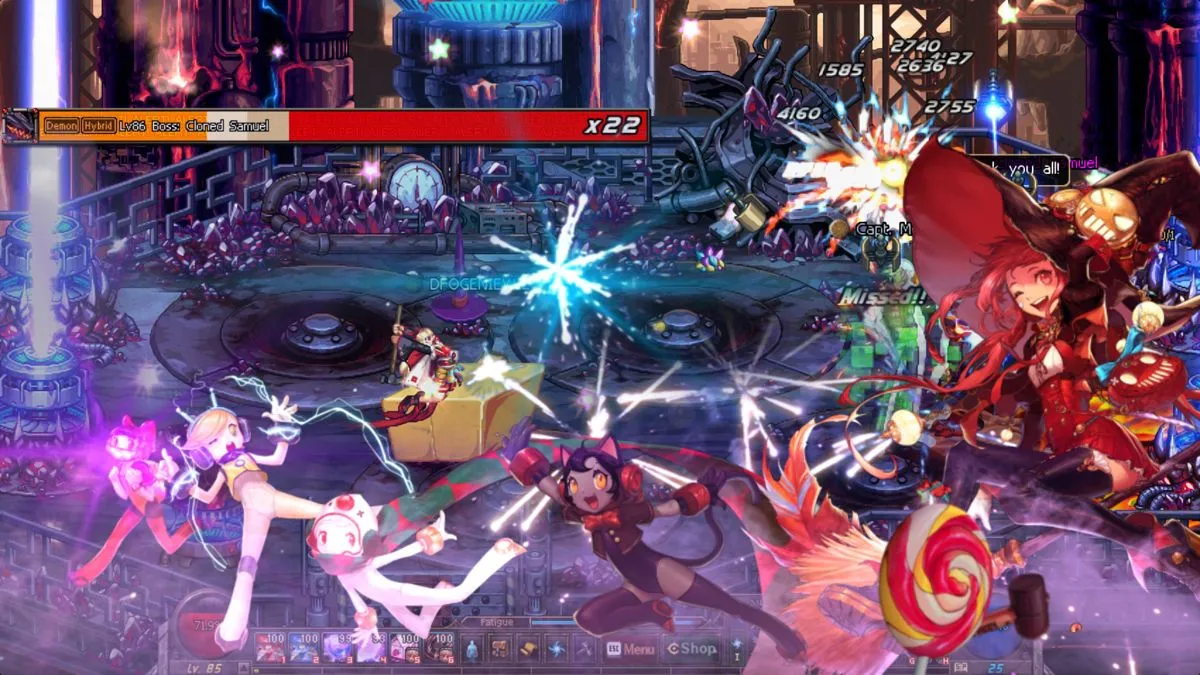In the pixelated world of gaming, be it the clamorous arcades or the quiet comfort of our living rooms, the beat ‘em up genre has always been a cornerstone of action gaming. Amidst the plethora of titles that define the genre, one game stands tall, bridging the relics of the past with the innovations of today: Dungeon Fighter Online (DFO). This massively multiplayer online role-playing game (MMORPG) has not merely survived the test of time but evolved, transforming the landscape of beat ‘em ups. Today, we probe intense-seated into the annals of DFO, tracing its origins, dissecting its transformative impact, drawing parallels with its contemporaries, pondering upon its implications for the future, and finally, basking in the endless legacy it continues to carve in the annals of gaming history.
The Roots of DFO
Before we embark on this odyssey, let’s journey back to where it all began. Released by Neople in 2005 and later brought to the global stage by various publishers, DFO is a fantastical voyage into the land of Arad, a realm teeming with dungeons, dragons, and, of course, danger. Its inception was marked by a simple yet compelling proposition: a side-scrolling beat ‘em up game with the depth of an MMORPG. This hybridization was a bold move, merging the intuitive, arcade-style combat with the elaborate narratives, character development, and social interactions characteristic of MMORPGs.
What set DFO apart from the outset was its involved balance between accessibility and depth. On one hand, its controls were straightforward, reminiscent of arcade classics, making it easy for newcomers to jump right in. On the other, its sprawling world, diverse class system, and elaborate skill trees offered a depth that rivaled its online contemporaries, making it a game with an appeal that was wide as it was deep.
How DFO Transformed the Genre
DFO’s significance in the beat ‘em up arena cannot be overstated. It transformed the genre in several key ways, primarily through its online multiplayer component. This feature fostered a sense of community and competition that was previously limited in the beat ‘em up genre. Players could now team up with friends or strangers from across the globe to probe into dungeons, trade items, and compete in PvP battles.
Moreover, DFO introduced a level of character customization unprecedented in beat ‘em ups. Players could tailor their characters to their play style, choosing from a plethora of classes—each with its unique progression paths and abilities. This level of personalization added a new dimension to the game, blending the strategic, role-playing elements with the frenetic, button-mashing joy of beat ‘em ups.
Comparison with Other Beat em up Games
To truly appreciate DFO’s contributions, it is essential to compare it with its contemporaries. Games like Streets of Rage, Teenage Mutant Ninja Turtles, and Final Fight ruled the roost in the beat ‘em up genre during the late 80s and early 90s. These games were defined by their straightforward gameplay, linear level design, and couch co-op multiplayer. DFO, while paying homage to these titans with its side-scrolling action and cooperative gameplay, transcended them by incorporating MMO elements, thereby appealing to a broader audience.
Another game worth comparing is Castle Crashers, which rejuvenated the beat ‘em up genre with its quirky art style, humor, and multiplayer gameplay. While both games were pivotal in modernizing the genre, DFO’s expansive world, in-depth character customization, and social dynamics offered a more enriched and sustainable gameplay experience.
Impact on Future Beat em up Games
DFO’s legacy extends far beyond its direct influence on subsequent titles. It has fundamentally altered expectations within the genre, setting a new benchmark for depth and online functionality. Future games now had a template that blended the instant gratification of beat ‘em up action with the engaging longevity of MMORPGs.
An example of its impact can be seen in games like Dragon’s Crown and Scott Pilgrim vs. The World: The Game, where elements such as character progression, skill trees, and online multiplayer have become staple features. These titles owe a part of their design philosophy to DFO, showcasing the game’s enduring influence on the genre’s evolution.
The Legacy of DFO
As we reflect on DFO’s indelible mark on the gaming landscape, it’s clear that its legacy is multifaceted. Beyond its genre-defining gameplay, DFO has cultivated a vibrant community, with millions of players worldwide continuing to inspect the land of Arad. Its regular updates, events, and expansions speak to Neople’s dedication to their magnum opus, ensuring that the game remains relevant and engaging.
Moreover, DFO’s artistic direction, with its distinctive 2D sprites and backgrounds, has left an elegant imprint on the genre, celebrating the nostalgic charm of pixel art while simultaneously pushing the envelope in design.
But perhaps DFO’s most significant legacy is its demonstration of the genre’s potential for innovation and reinvention. At a time when the beat ‘em up seemed a relic of a bygone era, DFO proved that with creativity and dedication, even the most traditional of genres could be transformed into something new and exciting.
In conclusion, Dungeon Fighter Online is more than just a game; it’s a pioneering journey that has forever altered the trajectory of beat ‘em up games. Through its creative fusion of genres, community-driven ethos, and commitment to evolution, DFO stands not merely as a monument to what has been achieved but as a beacon for what can be. As we look forward to the future of beat ‘em ups, one thing is clear: the echo of DFO’s legacy will resonate for generations to come, inspiring a new legion of games that dare to dream, dare to fight, and dare to dungeon dive into the unknown.

